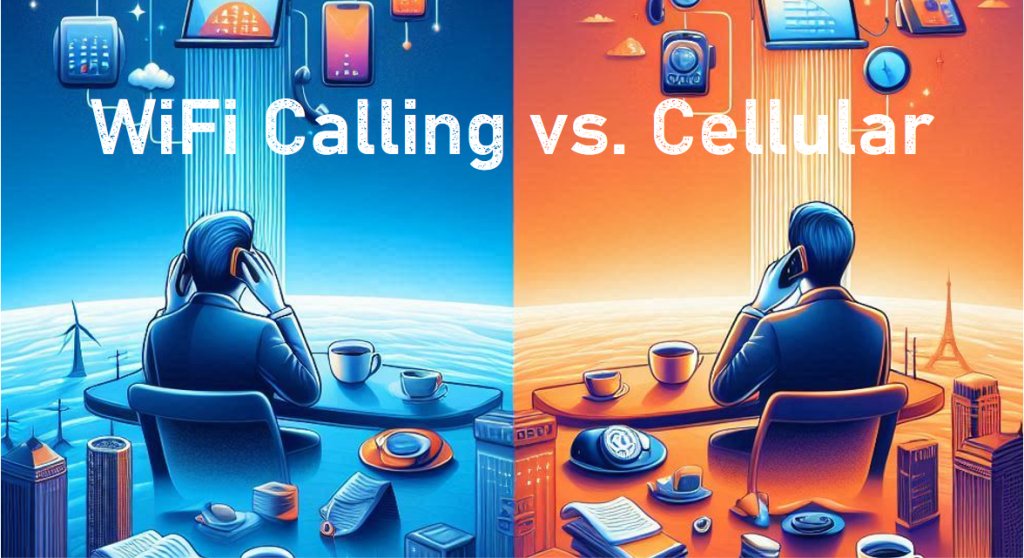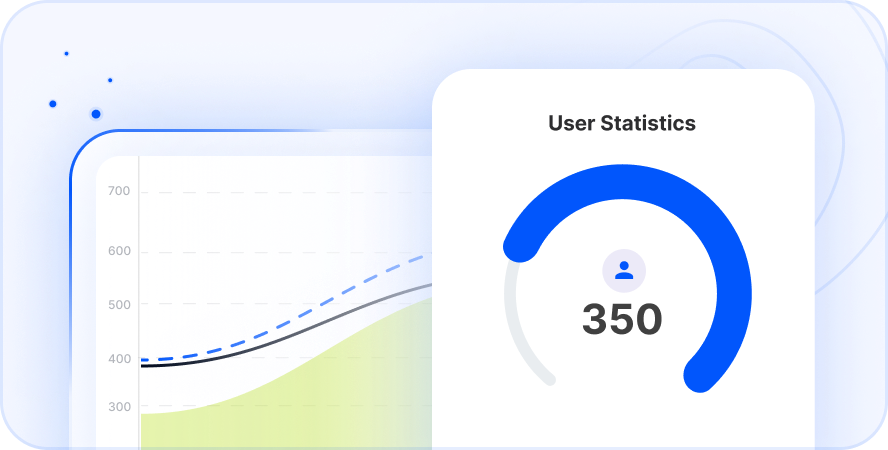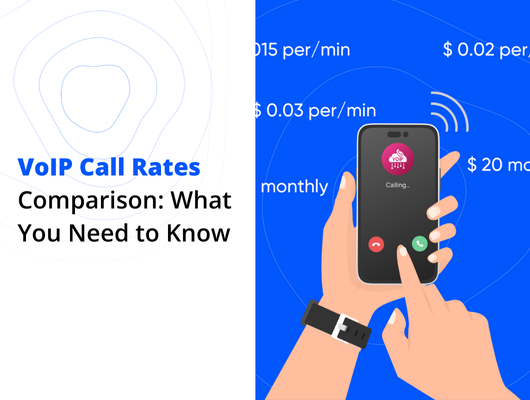
In today’s connected world, staying in touch is easier than ever. However, your phone calls don’t always travel the same path. You might be using traditional cellular networks or leveraging your internet connection through WiFi calling. Understanding the distinction between these two methods is key to ensuring reliable communication, whether you’re at home, in the office, or on the go. This guide breaks down the core differences, helping you make the best choice for your situation. For background information on how internet-based communication technology has evolved, you might find resources on the history of Voice over Internet Protocol (VoIP) helpful.
Diving Deeper into WiFi Calling
WiFi calling is a feature on many modern smartphones that lets you make and receive phone calls and text messages over a wireless internet connection instead of your carrier’s cellular network. Essentially, your calls use the internet as their transmission medium.
How WiFi Calling Works
When you enable and use WiFi calling, your phone prioritizes available WiFi networks. Instead of sending your call signal to the nearest cell tower, it sends it through the internet connection provided by the WiFi network you are connected to. This process typically uses Voice over Internet Protocol (VoIP) technology, which converts your voice into digital data packets that travel over the internet. Your carrier manages the routing of these internet-based calls to connect with the standard phone network or another VoIP service.
Requirements and Considerations
- Compatible Device: Not all phones support WiFi calling. Most newer smartphones do, but it’s best to check your device’s specifications or your carrier’s list of supported phones.
- Carrier Support: Your mobile carrier must support WiFi calling for your specific device and plan.
- Stable WiFi Connection: The quality of your call directly depends on the speed and stability of the WiFi network. A weak or congested network can lead to poor call quality or dropped calls.
- Software Updates: Keeping your phone’s operating system updated helps ensure the feature works correctly.
Benefits of Using WiFi Calling
- Improved Indoor Coverage: Cellular signals often struggle to penetrate buildings, especially basements or thick-walled structures. WiFi calling bypasses this issue by using the indoor WiFi network.
- Connectivity in Dead Zones: If you are in a rural area or a location with notoriously poor cellular reception but have access to WiFi, you can still make calls.
- Potential Cost Savings: For international calls, using WiFi calling can sometimes be cheaper than traditional international cellular rates, as it leverages the internet connection instead of relying purely on carrier roaming agreements.
- Clearer Call Quality: If you have a very strong and stable WiFi connection, the call quality can sometimes be clearer than a cellular call in an area with a weak cell signal.
Potential Downsides of WiFi Calling
- Reliance on WiFi Quality: Call quality is inconsistent if the WiFi network is unstable, slow, or has high traffic. This can result in choppy audio, delays, or dropped calls.
- Battery Consumption: Using WiFi calling can potentially drain your phone’s battery faster than cellular calling, as it requires the WiFi radio to be constantly active for calls.
- Emergency Calls (E911): While possible, E911 location data might be less precise on WiFi calling compared to cellular. Always have a backup plan or use cellular if available for emergencies.
- Data Usage: Although it uses a WiFi network, it still consumes bandwidth. If you have a data cap on your broadband, this could be a factor, though voice data is usually minimal.
Understanding Traditional Cellular Calling
Cellular calling is the standard method most people are familiar with. It relies on a network of cell towers maintained by mobile carriers.
How Cellular Calling Works
When you make a cellular call, your phone connects wirelessly to the nearest cell tower that is part of your mobile carrier’s network. The tower then transmits your call to the rest of the network, connecting you to the recipient. This process uses radio waves to send voice signals. Your phone switches between towers as you move, maintaining the connection.
Requirements and Considerations
- Mobile Service Plan: You need an active mobile plan with a cellular carrier.
- Network Coverage: Your ability to make and receive calls depends entirely on the carrier’s network coverage in your location.
- Signal Strength: Call quality is heavily influenced by the strength of the signal your phone receives from the cell tower.
Benefits of Using Cellular Calling
- Widespread Availability: Cellular networks cover vast geographic areas, especially outdoors and in populated regions. It’s the default and most common way to make calls.
- Consistent Reliability: In areas with strong signal strength, cellular calls are generally very reliable and offer consistent quality.
- Optimized for Mobility: Cellular networks are designed to handle handover between towers as you move, making it ideal for calls while traveling or commuting.
- Reliable Emergency Calls: Cellular networks are typically better equipped to provide accurate location information for emergency services (E911).
Potential Downsides of Cellular Calling
- Signal Dead Zones: Cellular signals can be blocked by physical obstacles like buildings, walls, mountains, or even weather, leading to poor reception or dead zones.
- Coverage Gaps: Rural areas, remote locations, or even specific spots within a city might have limited or no cellular coverage from certain carriers.
- International Roaming Costs: Making cellular calls while traveling internationally without a specific plan can be very expensive due to roaming charges.
- Quality Varies with Signal: Call quality can degrade significantly in areas with weak signal strength, resulting in static, dropped calls, or difficulty hearing.
Key Differences Compared
The fundamental differences between WiFi calling and cellular calling boil down to the infrastructure they use and how that impacts performance and availability.
Comparison Points:
- Infrastructure: WiFi calling uses your existing internet connection and local network (router, broadband). Cellular calling uses a dedicated network of cell towers and radio frequencies managed by your carrier.
- Connectivity: WiFi calling requires a connected and working WiFi network. Cellular calling requires your phone to register with a cell tower on your carrier’s network.
- Coverage Reliability: WiFi calling is reliable only within the range of a stable WiFi signal. Cellular coverage depends on the carrier’s network footprint and signal penetration, which can be inconsistent in certain locations.
- Call Quality Determinants: WiFi call quality is affected by internet speed, network congestion, and router performance. Cellular call quality is affected by signal strength, network load, and distance from the tower.
- Cost Implications: Both are often included in domestic plans. International costs can differ significantly, with WiFi calling potentially being cheaper as it uses internet rates rather than traditional cellular roaming.
- Emergency Services: Cellular provides more reliable and accurate location data for E911 calls. WiFi calling location can be less precise, sometimes relying on the registered address of the WiFi network.
- Battery: Can potentially use more battery
- Battery: Generally more battery efficient
Summary Table: WiFi Calling vs. Cellular
| Feature | WiFi Calling | Cellular Calling |
|---|---|---|
| Infrastructure | Internet via WiFi Network | Cell Tower Network |
| Connectivity | Requires Stable WiFi | Requires Cellular Signal |
| Coverage | Limited to WiFi Range | Depends on Carrier Network Area |
| Call Quality | Varies with WiFi Stability | Varies with Signal Strength |
| International | Often Cheaper (Uses Internet) | Can be Expensive (Roaming) |
| Emergency Calls | Location data less precise (E911) | More Reliable Location Data (E911) |
| Battery | Can potentially use more battery | Generally more battery efficient |
Choosing the Right Method
The best choice between WiFi calling and cellular calling isn’t about one being universally better. It’s about using the right tool for the right situation.
When to Opt for WiFi Calling:
- Inside Buildings with Poor Signal: If you frequently lose cellular signal inside your home, office, or other buildings but have strong WiFi, enable WiFi calling.
- Basements or Underground Areas: These locations are notorious for blocking cellular signals but can work perfectly with WiFi calling if internet is available.
- Traveling Internationally: Connect to WiFi at your hotel or a hotspot to make calls without incurring high international roaming charges. Always check your carrier’s policy first.
- Areas with Known Cellular Dead Zones: If a specific location you visit often has no cell service, look for available WiFi networks.
When to Rely on Cellular Calling:
- While Traveling or Commuting: As you move, your phone seamlessly switches between cell towers, providing consistent connectivity where coverage exists. WiFi is often static.
- In Areas with Strong, Reliable Cellular Coverage: If your carrier provides a strong signal, cellular calling offers consistent quality and reliability.
- For Emergency Calls: When dialing emergency services like 911, cellular is generally the more dependable option for location tracking.
- When WiFi is Unstable or Unavailable: If you’re outdoors, on the road, or connected to a public WiFi network that isn’t reliable, cellular is the better choice.
Real-World Scenarios
Consider these common situations:
- Scenario 1: Your Apartment’s Signal Problem: You live in a building where your phone gets one bar of signal inside, leading to dropped calls. By enabling WiFi calling and connecting to your home internet, you can make and receive calls clearly and reliably from anywhere within your apartment.
- Scenario 2: The Cross-Country Road Trip: Driving through varied landscapes means encountering areas with strong signals, weak signals, and maybe even dead zones. Your phone will automatically use the cellular network because WiFi isn’t available or practical while moving, ensuring connectivity wherever the towers reach.
- Scenario 3: Calling Home from Abroad: You’re on vacation overseas and want to call your family. Connecting to your hotel’s WiFi and using WiFi calling on your phone can allow you to make the call using your regular plan or at a much lower rate than traditional international roaming fees.
- Scenario 4: A Busy Coffee Shop: You’re connected to public WiFi, but everyone else is streaming videos. The WiFi network is congested, leading to choppy audio on your call. Switching to cellular calling, if you have a decent signal, would likely provide a clearer conversation.
Ultimately, your phone is designed to intelligently switch between cellular and WiFi calling based on network availability and signal strength, often prioritizing WiFi when available and enabled. Understanding when each method is beneficial empowers you to troubleshoot connectivity issues and optimize your calling experience.
FAQs
1. Do I need a special app for WiFi calling?
No, for most modern smartphones and carriers, WiFi calling is a built-in feature you can enable in your phone’s settings.
2. Does WiFi calling use my mobile data plan?
No, when you are connected to a WiFi network and using WiFi calling, the call uses your internet connection’s bandwidth (from your broadband provider), not your mobile data allowance from your carrier.
3. Can I make SMS messages over WiFi?
Yes, many carriers also support sending and receiving SMS and MMS messages over WiFi when WiFi calling is enabled.
4. What happens if I move out of WiFi range during a WiFi call?
If you are on a WiFi call and move out of range of the WiFi network, most phones will attempt to seamlessly transfer the call to the cellular network if a strong enough signal is available. If not, the call may drop.
5. Is WiFi calling always better quality than cellular?
No. While WiFi calling can be clearer in cellular dead zones if the WiFi is excellent, a strong cellular signal often provides very high and reliable call quality. Poor or unstable WiFi can result in worse quality than even a weak cellular signal.









